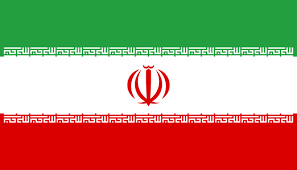Difference between revisions of "Language/Iranian-persian/Culture/Communicate"
< Language | Iranian-persian | Culture
Jump to navigation
Jump to search
m (Quick edit) |
|||
| Line 15: | Line 15: | ||
You refuse to be recognized as someone who eats a lot of food (Eating too much in Iranian culture is bad). | You refuse to be recognized as someone who eats a lot of food (Eating too much in Iranian culture is bad). | ||
==Related Lessons== | |||
* [[Language/Iranian-persian/Culture/Iranian-calendar|Iranian calendar]] | |||
* [[Language/Iranian-persian/Culture/Castles|Castles]] | |||
* [[Language/Iranian-persian/Culture/Nowruz|Nowruz]] | |||
* [[Language/Iranian-persian/Culture/Ramadan|Ramadan]] | |||
* [[Language/Iranian-persian/Culture/The-Bakhtiari|The Bakhtiari]] | |||
* [[Language/Iranian-persian/Culture/Transportation|Transportation]] | |||
* [[Language/Iranian-persian/Culture/New-year|New year]] | |||
* [[Language/Iranian-persian/Culture/Sizdahbedar|Sizdahbedar]] | |||
* [[Language/Iranian-persian/Culture/Official-Farsi-and-informal-Farsi|Official Farsi and informal Farsi]] | |||
* [[Language/Iranian-persian/Culture/Iran-Timeline|Iran Timeline]] | |||
Revision as of 16:21, 26 February 2023
Taarof behavior
One of the characteristics of communication in Iranian culture is that it lacks clarity and transparency.
For example, the host wants you to eat the food he has prepared. First you refuse to do it and the host insists again;
The host insists and you refuse.
This is called Taarof behavior.
The host insists on not being known as a miserly person.
You refuse to be recognized as someone who eats a lot of food (Eating too much in Iranian culture is bad).
